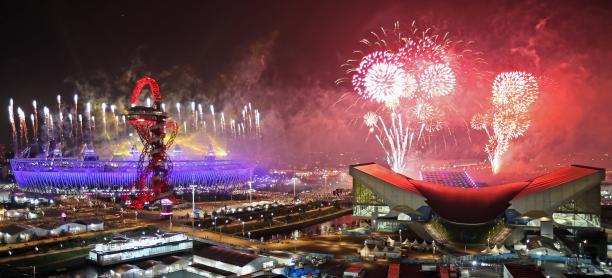No. 1: London 2012: inspiring a generation, transforming a nation
23.09.2014The London 2012 Paralympic Games were the best ever, breaking multiple records and inspiring a generation.
 Fireworks during the closing ceremony of the London 2012 Paralympic Games.
© • Getty Images
Fireworks during the closing ceremony of the London 2012 Paralympic Games.
© • Getty Images
“What struck me most was that people were not seeing the disabilities: they were seeing the abilities. These were athletes performing feats that so-called ‘able-bodied’ people would not have got within a country mile of.”
The London 2012 Paralympic Games were the best ever, breaking multiple records and creating seismic shifts in attitudes and perceptions towards people with an impairment.
The Games did not just inspire a generation, but transformed a nation forever.
In September 2011, over 30,000 people attended International Paralympic Day in London’s Trafalgar Square. It was a taste of what was to come.
The media interest was unprecedented and, on the back of it, one million Paralympic Games tickets were sold in a matter of days.
The momentum continued in the lead-up to the Games.
For the first time ever, the Games were positioned by the organising committee, media, broadcasters and commercial partners as a high performance sporting event. Para-athletes were promoted on the strength of their amazing abilities, as opposed to their perceived disabilities.
Every worldwide Olympic partner signed up as a Paralympic sponsor, and many Paralympians starred in TV and billboard campaigns.
British broadcaster Channel 4 led the way with its multi-award winning Superhumans TV commercial, and their breathtakingly innovative Games coverage was watched by two thirds of the UK population.
The Games attracted a record-breaking 4,236 athletes from 164 countries. They competed across 20 sports in packed venues after a record 2.7 million tickets were sold.
The British media gave the event the coverage it deserved; the achievements and stories of Paralympians were headline news – at both the front and back of all national newspapers.
More broadcasters than ever before covered the London 2012 Paralympic Games. TV pictures were beamed to over 100 countries, reaching a cumulative audience of 3.8 billion people.
By the time Coldplay, Rihanna and Jay-Z performed at the Closing Ceremony, few could believe what had taken place in the previous 12 days.
London 2012 chair Seb Coe, speaking on the first anniversary of the Games, said: “What struck me most was that people were not seeing the disabilities: they were seeing the abilities. These were athletes performing feats that so-called ‘able-bodied’ people would not have got within a country mile of.”
Post Games research found that fantastic athletic performances, combined with capacity crowds and unprecedented media coverage, led to a huge shift in British society.
One in three UK adults changed their attitude towards people with an impairment, while two in three said the Paralympic Games changed the way people with an impairment are viewed in Great Britain.
Canadian wheelchair racer Josh Cassidy said: "The 2012 Paralympics changed everything. It revolutionised the nation, literally. It changed disability awareness and sport in the UK forever."
So many aspects of London 2012 have set the benchmark for how future Paralympic Games should be organised.



















